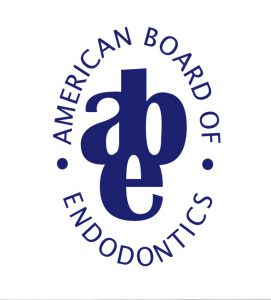
Endodontics - a root canal specialty
Endodontics is the specialty of dentistry recognized by the American Dental Association that deals with diseases and treatment of the dental pulp and its supporting structures. When you look at your tooth in the mirror, what you see is the crown. The rest of the tooth, the portion hidden beneath the gum line, is called the root. The outermost layer of the tooth is the hardest tissue in the body and is called ENAMEL. Enamel is supported by a hard inner layer called DENTIN that contains soft PULP tissue in its central core. Pulp tissue is composed of blood vessels, nerves, and connective tissue that actually made the surrounding hard dentin during tooth development. Pulp tissue can become damaged or diseased when bacteria that are introduced into the pulp as a result of tooth decay, periodontal disease, tooth fracture or other problems.
The pulp receives its vitality from vessels that enter through small openings at the ends of the roots. Although the pulp is important during development of the tooth, it is not essential to maintain the tooth. Endodontic (root canal) treatment removes diseased pulp tissue from the tooth, often relieving pain or infection, allowing you to save the tooth and prevent further infection and inflammation. After endodontic treatment, the tooth continues to be nourished and maintained by the surrounding tissues.

Who Is AnEndodontist
An endodontist is a dentist who completed a 2-3 years of additional post graduate specialty training or residency program specific to the diagnosis and treatment of diseases of the dental pulp. All dentists are trained in diagnosis and endodontic therapy, however, this specialist training allows endodontists to deal with diseases of the dental pulp and supporting structures as well as diagnose facial pain and related problems at much more complex level. This additional background, experience, research, and skill gives Endodontists the ability to deal with many challenges.

 Dr. Frances Ballagas
Dr. Frances Ballagas
7352 Stonerock Cir Suite B
Orlando, FL 32819

 Email:
Email: